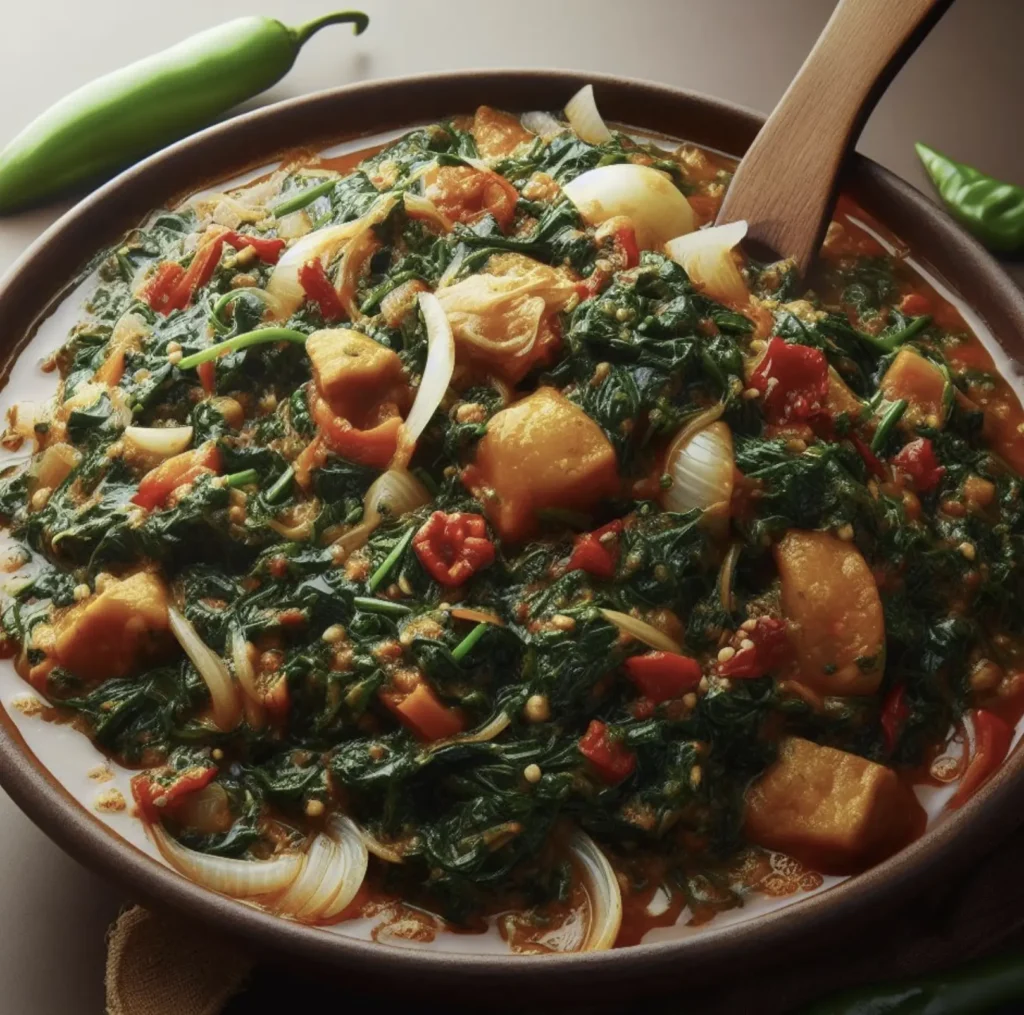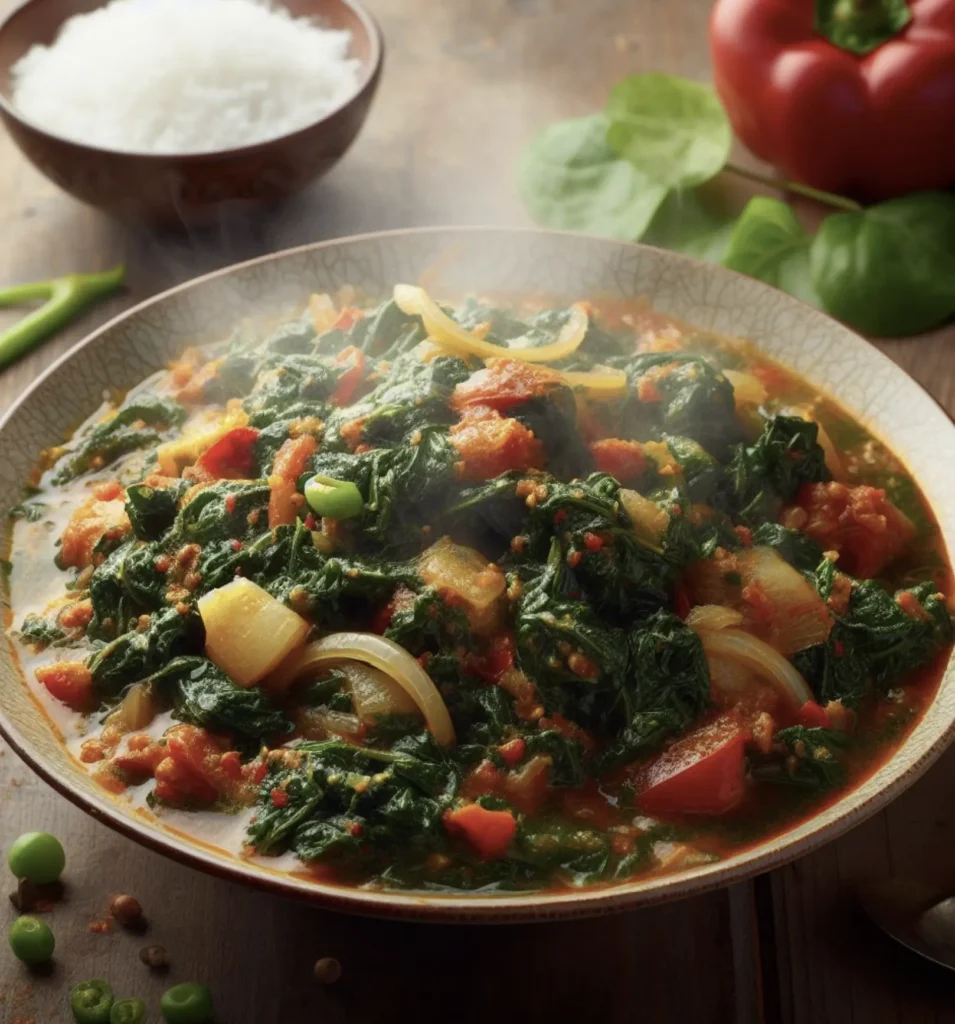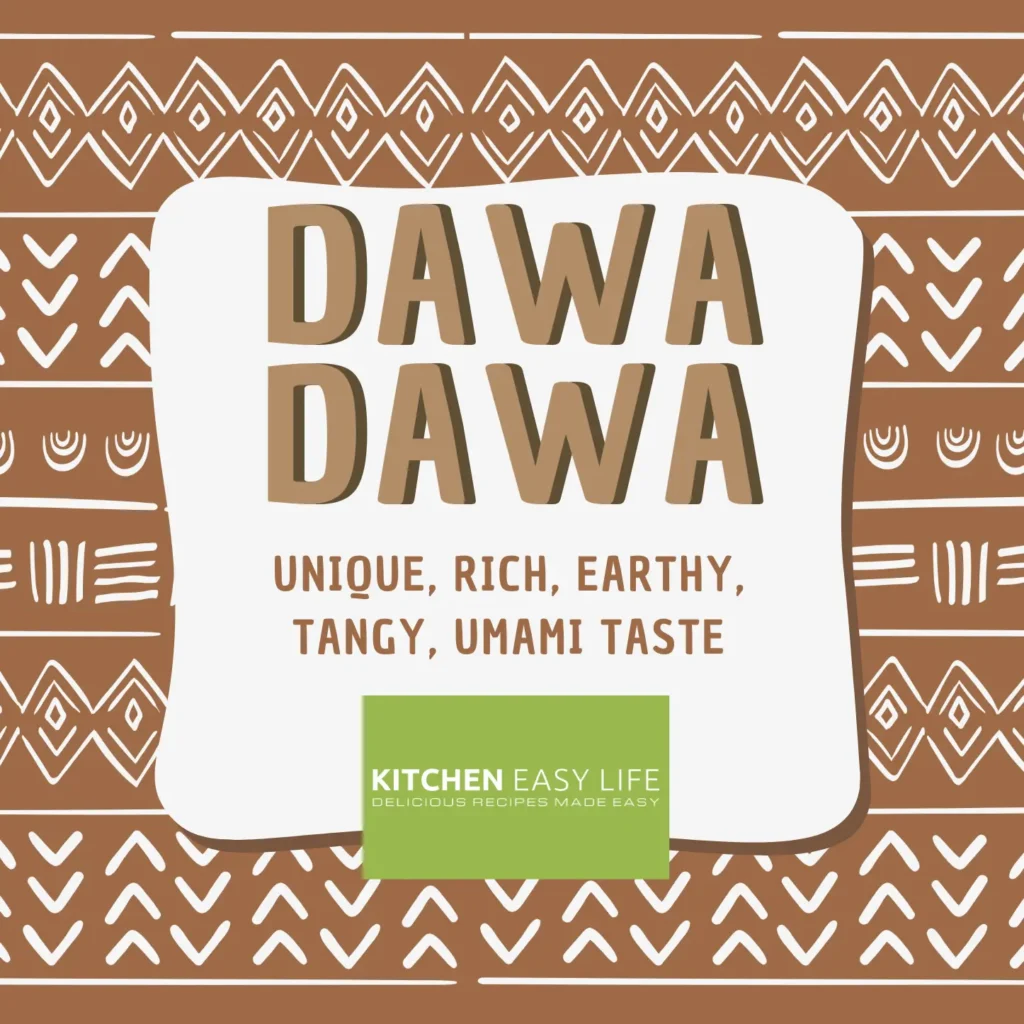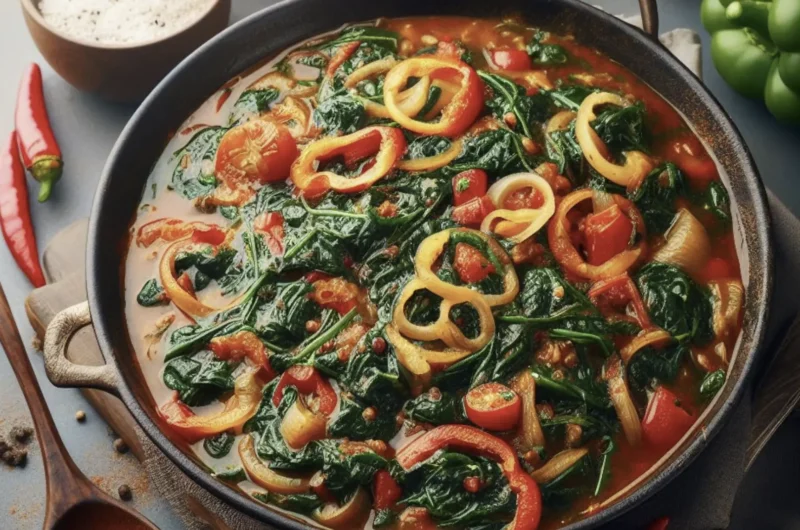Are you craving something new, authentic, and absolutely delicious? Well, buckle up because today we’re diving deep into the mouth-watering world of Nigerian vegetarian recipes! 🍲🌱 Nigerian food is the real deal, bursting with flavors that are nothing short of a rollercoaster for your taste buds. We’re talking about a culture rich in culinary tradition, where food isn’t just sustenance—it’s a form of love, an art, a community builder, and a reflection of the vibrant Nigerian spirit.
The Culture & Its Cuisine
Now, let’s take a moment to talk about Nigerian culture, especially when it comes to food. Food plays a vital role in Nigerian households. It’s not just about filling your belly; it’s a communal experience, a way of bringing family and friends together. Traditional recipes are passed down through generations like precious heirlooms. In fact, the best things in life often happen around a Nigerian dinner table, and that’s a fact!
The Fresh Ingredients
When it comes to Nigerian cuisine, it’s all about the ingredients. Fresh veggies like bell peppers, leafy greens, and habanero peppers are staple foods. And let’s not forget about the essential amino acids found in black-eyed peas, making them a great source of protein in a vegetarian diet. Spices? Oh, we have a line-up of taste-bud-tingling common spices like curry powder that make every dish a hit.

A Palette of Flavors and Dishes
Nigerian food offers an array of dishes that will make your mouth water just thinking about them. Apart from Efo Riro, we have the likes of Jollof rice, Moi Moi, Egusi soup, and Okra soup. Every dish is a symphony of flavors, employing a range of ingredients that are not only delicious but offer numerous health benefits. Each meal is a little celebration in your mouth!
| Dish Name | Main Ingredients | Flavor Profile |
|---|---|---|
| Efo Riro | Spinach, tomatoes, peppers | Spicy and savory |
| Jollof Rice | Rice, tomatoes, onions, peppers | Rich and spicy |
| Akara | Black-eyed peas, onions, peppers | Crispy and savory |
| Moi Moi | Black-eyed peas, peppers, onions | Soft and spicy |
| Yam Porridge | Yams, peppers, onions | Creamy and hearty |
| Pounded Yam and Egusi Soup | Egusi seeds, spinach | Creamy and nutty |
| Plantain Porridge | Ripe plantains, spices | Sweet and savory |
| Beans and Plantain Pottage | Beans, sweet plantains | Rich and hearty |
Jollof Rice – The Heart of Celebrations
Let’s talk about Jollof rice, the heart and soul of Nigerian cuisine, and often the star of celebrations. This spicy, tomato-based rice dish is often served with a side of fried plantain for that extra burst of flavor. The vegetarian version uses vegetable stock instead of chicken stock, and believe me, it’s just as divine!
Moi Moi – A Protein-Rich Delight
Speaking of plant-based diets, if you’re looking for something high in protein, look no further than Moi Moi (also known as Moin Moin). It’s made from blended black-eyed beans mixed with peppers and spices and then steamed in banana leaves or aluminum tins. This dish is a fantastic example of how Nigerian vegan dishes are packed with essential amino acids and health benefits, like vitamin B, making them nutritious as well as tasty.
Egusi Soup – A Rich Experience
Egusi soup, often made with melon seeds, vegetables, and palm oil, is another staple. For our vegan friends, the meat is easily replaced by tofu or seitan, and vegetable stock replaces the meat stock. You’ll still get to enjoy that rich, creamy texture that Egusi soup is famous for.
Common Spices & Health Benefits
Now, let’s talk about spices. In Nigerian cuisine, spices like curry powder, thyme, and bay leaves are often used to elevate dishes. These spices don’t just add flavor; they offer health benefits too. For instance, curry powder is known for its anti-inflammatory properties.
The Social Media Wave
The best part? Nigerian vegetarian recipes are getting their much-deserved spotlight on social media. Content creators and food bloggers are continuously exploring the vegetarian and vegan options of traditional recipes, giving them modern twists. So if you’re looking for inspiration or your first-time cooking Nigerian food, social media is your friend!
The Importance of Sauces
Nigerian cuisine is incomplete without mentioning the variety of sauces, like “Obe Ata” or red stew, and pepper sauce made with Scotch bonnet or habanero peppers. These are commonly served as dipping sauces or accompany staple foods like white rice or sweet potato.
The Sweet Side
Let’s not forget the sweet taste of Nigerian desserts like almond butter cake and sweet plantain recipes that you can find in every Nigerian household. For a healthier option, you can also try plantain recipes made with unripe banana which is lower in sugar.
So, you’ve got your apron on and your spices lined up, but what’s the secret behind the explosion of flavors in Nigerian vegetarian recipes? Well, let’s break down the major flavors that are the backbone of this incredible cuisine.
The Power of Peppers 🌶️
In Nigerian vegetarian recipes, peppers are the unsung heroes. Scotch bonnet peppers, habanero peppers, and red bell peppers bring in the heat, warmth, and depth of flavor. They make up the base for pepper soups and red stews, known as “Obe Ata,” giving each dish its signature kick. The spice level can be adjusted to suit your taste buds, but a little heat is almost always welcome in Nigerian dishes.
Palm Oil – The Liquid Gold
Palm oil is to Nigerian cuisine what olive oil is to Mediterranean food. Its rich, reddish hue and unique flavor set the tone for many dishes, especially traditional recipes like Efo Riro and Moi Moi. It brings a certain richness that vegetable oil simply can’t replicate. But hey, if you’re watching your saturated fats, some recipes allow for a swap with vegetable oil.
Curry Powder & Thyme – The Fragrant Duo
Thyme and Curry powder are common spices that are like the rhythm section in a band—often in the background but essential for the overall harmony. Curry powder offers subtle heat and a mix of turmeric, cumin, and coriander that heightens the flavors. Thyme adds a minty-lemon aroma and a layer of complexity, especially when used in rice dishes like Jollof rice.
The Sweetness of Plantains 🍌
Now, no discussion of Nigerian flavors is complete without mentioning the natural sweetness of plantains. Fried, boiled, or mashed, plantains offer a sweet contrast to spicy and savory dishes. They’re a fantastic source of vitamins and add a whole new texture to the plate.
Umami from Mushrooms
For those who want to keep it strictly vegetarian or even vegan, mushroom powder can be your best friend. It provides an umami kick that often compensates for the lack of meat, making your vegetarian diet incredibly satisfying.

A Symphony of Aromatics
Last but not least, bay leaves, onions, and garlic often work behind the scenes, lending an aromatic backdrop to almost every dish. They’re like the supporting cast that helps the main characters shine brighter.
These flavors are the pillars that hold up the grand architecture of Nigerian vegetarian recipes. They’re more than mere ingredients; they’re cultural icons that tell a story in every bite. Whether you’re a seasoned cook or it’s your first time dabbling in Nigerian cuisine, understanding these flavors is like getting handed the keys to a treasure chest.
The Savory Edge
Locust beans, also known locally as “dawa dawa,” add a complex, earthy flavor to vegetable soups like Efo Riro and Egusi Soup. If you haven’t tried this in your Nigerian cooking adventures, you’re in for a delightful surprise. It’s a hidden gem in many traditional recipes, adding a depth of flavor that will leave you craving more. So let’s delve into the nitty-gritty of this fascinating ingredient.
What is Dawa Dawa?
First, a quick intro! Dawa dawa originates from the seeds of the African locust bean tree. These seeds undergo fermentation, and what remains is a potent, aromatic, dark brown-to-black paste or cake. A little goes a long way, and it’s a cornerstone of traditional cooking in many West African countries, including Nigeria.
Flavor Profile
So, what does it taste like? Think of dawa dawa as the unsung hero that brings a rich, earthy, slightly tangy, and fermented flavor to your cooking. Its complexity is somewhat akin to fermented soybeans and can be likened to a strong, matured cheese. It adds a unique savory note, also known as umami, that’s hard to replicate with any other ingredient.

Texture Matters
In terms of texture, dawa dawa is often available in a cake or paste form. It easily crumbles into dishes, dissolving to give a velvety richness that ties all the flavors together. Sometimes you’ll find it in granulated form too, which is super convenient to sprinkle over your cooking, almost like a seasoning.
How to Use Dawa Dawa
You’ll find dawa dawa commonly used in traditional soups like Efo Riro and Egusi Soup. It’s the secret ingredient that amps up the savory profile, enhancing the leafy greens and spices. Just a teaspoon or two is sufficient to transform your pot of soup or stew.
In vegetarian diets, it shines particularly bright because it offers a complexity often missing when meat is removed from the equation. It pairs exceptionally well with leafy greens, okra, and even rice dishes like Jollof rice. If you’re whipping up some Nigerian stew, just add a smidgen of dawa dawa for that authentic touch.
Here’s a pro-tip: If you’re using dawa dawa for the first time, start small. Its flavor is potent, and it’s better to add more as you go along, tasting as you cook.
Health Benefits
On the health front, dawa dawa is a powerhouse. It’s packed with protein and essential amino acids, making it a wonderful addition to a vegetarian or vegan Nigerian diet. It also contains lipids and helps in enhancing the nutritional value of meals.
There’s no question that dawa dawa is an incredible addition to your pantry staples if you’re keen to explore Nigerian vegetarian recipes. It embodies the essence and depth of traditional West African cooking, making each dish not just a meal, but an experience.
FAQS
What Nigerian Food is Vegetarian?
Nigeria, with its rich culinary heritage, offers a variety of vegetarian options. Some of the most popular ones include:
- Efo Riro: A spinach stew, often cooked with tomatoes, peppers, and onions.
- Jollof Rice: A one-pot dish with rice, tomatoes, peppers, and various spices.
- Akara: Fried bean cakes made from black-eyed peas and spices.
- Moi Moi: Steamed bean pudding, usually flavored with peppers, onions, and other spices.
- Yam Porridge (Asaro): A comforting dish made with yams, peppers, and a blend of spices.
Is Nigerian Food Vegan Friendly?
Absolutely! Many Nigerian dishes are naturally vegan or can be easily modified to be so. Ingredients like beans, rice, yams, and a variety of leafy greens form the basis of many Nigerian vegan dishes. Spices and herbs add a burst of flavor, ensuring that vegan Nigerian food is anything but bland.
What Percentage of Nigeria is Vegetarian?
Finding exact figures for vegetarianism in Nigeria can be tricky, as dietary choices are often influenced by cultural, economic, and religious factors. However, it’s estimated that a significant portion of the population leans towards plant-based diets, either by choice or necessity. Vegetarianism is gradually gaining more recognition in Nigeria for health and lifestyle reasons.
What is Nigerian Comfort Food?
Nigerian comfort food is all about warmth, heartiness, and soul. Vegetarian versions include:
- Pounded Yam and Egusi Soup: A creamy melon seed soup, often enjoyed with soft, pounded yam.
- Plantain Porridge: A sweet and savory dish made with ripe plantains and a variety of spices.
- Beans and Plantain Pottage: A hearty and nutritious combination of beans and sweet plantains.
What is the Most Eaten Food in Nigeria?
Rice dishes, particularly Jollof Rice, are amongst the most eaten foods in Nigeria. They are a staple at celebrations and everyday meals alike. Variations of rice dishes, both vegetarian and non-vegetarian, can be found across the country, each region adding its unique twist to the recipe.
The Star of the Show: Efo Riro
Today, we’re zoning in on Efo Riro, a classic Yoruba tribe dish that will woo your vegetarian taste buds. While the original Efo Riro typically includes meat, our vegetarian option doesn’t skimp on flavor, thanks to the rich vegetable stock and traditional ingredient of locust beans, also known as “dawa dawa.”
Best Nigerian Vegetarian Recipes to Try (Efo Riro)
Course: DinnerDifficulty: Medium4
servings20
minutes20
minutesEfo Riro is a rich, hearty Nigerian spinach stew that’s packed with flavors, proteins, and the undeniable power to make your taste buds dance with joy.
Ingredients
1 large red bell pepper
1 Scotch bonnet pepper
2 medium-sized tomatoes
1 large onion
2 cups spinach or any leafy greens
1/2 cup palm oil
2 tablespoons locust beans (dawa dawa)
1 teaspoon curry powder
2 stock cubes
Salt to taste
Directions
- Start by washing all your vegetables. Cut the bell peppers, Scotch bonnet pepper, and tomatoes into chunks.
- Blend these together in a food processor until smooth to make your own pepper sauce.
- Place a pot on medium heat and add the palm oil. Allow it to heat up but not to a smoking point.
- Sauté the chopped onions until translucent. Add the blended pepper sauce and cook until the oil floats on top.
- Add locust beans, stock cubes, and curry powder. Stir and let it simmer for about 10 minutes.
- Add your leafy greens, stirring until they wilt into the sauce.
- Add salt to taste, stir, and voila, your Efo Riro is ready to be devoured!
Notes
- See Bonus Recipe below for an amazing side!
Efo Riro pairs beautifully with white rice or for a more traditional experience, cassava flour. This dish is a perfect example of how Nigerian vegetarian recipes can be just as fulfilling and sumptuous as their meaty counterparts.
Bonus Recipe: Vegan Nigerian Jollof Rice
Before we close, I want to share another full recipe with you—Vegan Nigerian Jollof Rice.
Ingredients:
- 2 cups long-grain parboiled rice
- 1 large red bell pepper
- 1 large onion
- 1 Scotch bonnet pepper
- 1/2 cup vegetable oil
- 1 teaspoon thyme
- 1 teaspoon curry powder
- 2 cups vegetable stock
- Salt to taste
Instructions:
- Wash the rice until the water runs clear. Drain and set aside.
- Blend the red bell pepper, onion, and Scotch bonnet pepper in a food processor until smooth.
- In a pot on medium heat, heat the vegetable oil. Add the blended mixture, thyme, and curry powder. Cook until the oil floats on top.
- Add the rice, stirring until it’s well-coated with the sauce.
- Add vegetable stock and salt to taste. Cover and cook until rice is done.
From the sizzling heat of peppers to the earthy allure of dawa dawa, Nigerian vegetarian recipes are a tapestry of flavors, textures, and traditions. Each ingredient tells a story, and every dish is a celebration, not just of taste but of a rich, vibrant culture. So, don your chef’s hat and get ready to embark on a food journey that promises to be as enriching as it is delicious.
Craving more delicious recipes? Try these: Queso Blanco

